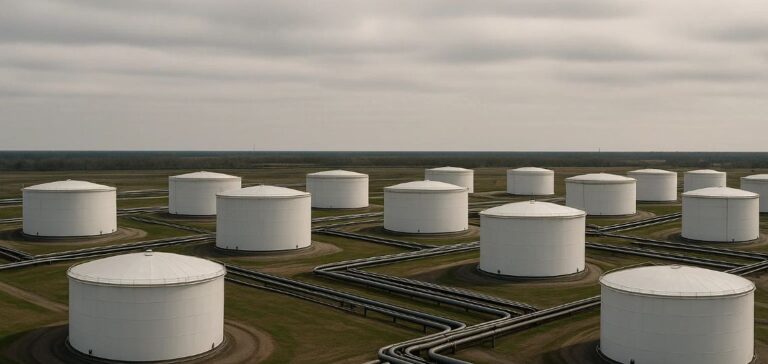Commercial crude oil inventories in the United States decreased by around 2 million barrels during the week ending on May 2, according to a report published by the Energy Information Administration (EIA). The decline slightly exceeded analysts’ expectations, who had anticipated a drop of 1.9 million barrels, based on a consensus compiled by Bloomberg.
Total commercial stocks, excluding the Strategic Petroleum Reserve, now stand at 438.4 million barrels. This trend coincides with increased activity at US refineries, which operated at 89% of capacity, up from 88.6% the previous week. This is their highest utilisation rate since early January, indicating stronger demand for crude destined for processing.
Refinery output rises, Cushing stocks fall
This intensification in refining has directly contributed to the drawdown in crude inventories, as larger volumes are processed. At the same time, crude stocks at the Cushing delivery hub in Oklahoma—main terminal for West Texas Intermediate (WTI)—fell by approximately 700,000 barrels. This localised decline occurred despite a 10.15% increase in US crude imports during the reporting period.
Meanwhile, exports declined slightly by 2.79%, according to EIA data. The imbalance between inbound and outbound flows may also help explain the relatively moderate overall inventory reduction.
Strategic reserve builds up
Contrary to commercial trends, the Strategic Petroleum Reserve (SPR) increased to 399.1 million barrels. This marks its highest level since October 2022, reflecting a federal strategy to rebuild the reserve that began in the second half of 2023.
At the same time, US gasoline demand dropped by more than 4%, a notable fall ahead of the summer season, when fuel consumption typically rises. This drop in demand could temporarily ease pressure on supply.
Moderate impact on markets
Oil markets reacted modestly to the report’s release. At 14:55 GMT, Brent crude for July delivery was down 0.63% at $61.76 per barrel, while West Texas Intermediate for June delivery fell 0.58% to $58.75 per barrel. The limited price movement suggests partial incorporation of the data into market expectations.
The EIA’s publication comes as the United States continues to balance its energy supply strategy, navigating between strategic stock replenishment and operational adjustments in trade flows.






















